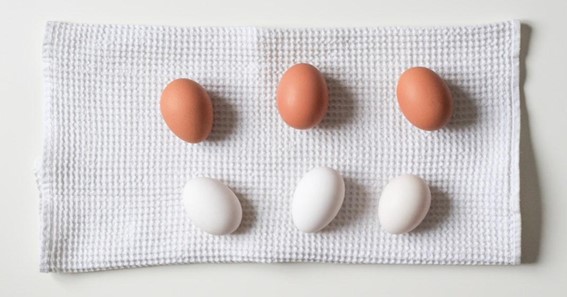When you visit any grocery store, there’s a seemingly endless array of decisions to make. So many choices to make, options to choose from, and products to consider.
Recently, the rise in egg prices may have had you thinking twice about your normal egg-buying habits. If you buy white eggs, you may have thought – why not brown? And if you’ve been buying brown, you may have thought vice versa.
What is the actual difference between white eggs vs brown eggs? Is one healthier than the other – what should you consider when making a purchase?
There’s a lot to get familiar with, and lucky for you, we’ll be able to walk you through it. Read on and we’ll walk you through what you need to know about white and brown eggs.
Click here – 5 Common Mistakes with Shipping Cars and How to Avoid Them
What Determines Chicken Egg Color?
When you visit your local supermarket, you’ll see plenty of both white and brown eggs available in the dairy aisle. It’s logical to assume there must be some difference between these eggs.
The reality, however, is not so – there’s little if any difference between these eggs at all. That’s right – the difference between white and brown eggs is merely one of pigmentation, and the content and nutrition of these eggs are similar outside of this exterior skin.
Eggs, in fact, can come in all kinds of colors. Outside of white and brown, there are also olive egger chickens who lay eggs that are actually more of a green-blue color.
These chickens are rare than your standard chicken, but something about their genetics tends to produce this kind of pigmentation. However, often even among specific breeds and varieties of chickens, particular genetics might result in different colored eggs.
Just as you or your sibling might have different colored eyes, a hen may lay a different colored egg than their immediate relative does.
The life, diet, and habits of a particular hen also might have some impact on the color of its eggs. However, this is more likely going to impact the shade of brown or white as opposed to creating a different pigmentation altogether.
Does That Make White and Brown Eggs Different?
When you eat white eggs, are you getting a different experience from someone who eats brown eggs? Is one healthier than the alternative, as some people seem to believe?
The answer is no – no matter which color egg you decide to take home with you from the store, you’ll be getting the exact same product within the shell. Despite the recent belief that brown eggs are somehow more natural and healthier, they don’t actually differ in nutritional quality whatsoever.
The good news is that both varieties of eggs are quite good for you. They provide vitamins, minerals, and proteins of high quality. They are also very low in calories, which means you’re not putting on a lot of unhealthy fat when you eat eggs as part of your normal diet.
There can be some difference in nutritional value when it comes to eggs – but color has nothing to do with the matter. Any belief in this kind of difference is one of our own personal projection and perception.
If you notice price differences between your white and brown eggs at the supermarket, you’ll now be able to tell what marketing ploy is being used to try and get you to pony up more money.
Whether you buy white eggs or brown eggs, you’ll be getting the same thing.
Click here – Private vs Charter Schools: What Are the Differences?
So What Does Impact Egg Differences?
If egg color doesn’t have an impact on its overall nutritional value, then what does? The biggest thing that will actually impact your egg takeaway isn’t white or brown – it’s the hen’s environment.
How healthy a life a hen leads will impact how much nutrition can be found in the eggs that they produce. A hen that is allowed to roam free will get more exercise and sunlight. That will mean they’ll produce eggs with more vitamin D and protein than hens that were raised trapped in a small cage.
The diet of a hen can also have a big impact on the final nutritional value of an egg that it lay. The more nutritional and healthy their feed is, the more they’ll pass on these nutrients to their eggs.
So – when you go to the grocery store, it might not be worth handing over extra money to get brown or white eggs. However, there will be actual value in purchasing eggs laid from cage-free hens, as they likely lived much healthier lives.
This choice will help ensure you’re getting the best from your breakfast investment. While you’ll have to hand over more money to ensure you’re getting these extra nutrients, it might be worth the additional upcharge.
After all, it’s for your health!
In addition, you’ll be supporting the more humane treatment of farm animals. When we take care of animals, we get better and healthier products as a result. It can give you an extra boost of positivity when you go shopping to support this kind of cause.
White Eggs vs Brown Eggs: Knowing the Differences
It turns out that when it comes to white eggs vs brown eggs, there’s not all too much of a difference of all. As the above information explains, the only real change between these two types of eggs is their exterior pigmentation. The real thing to look out for when you go shopping is how a hen was raised.
Need more diet and nutrition info and advice? Keep scrolling our blog for more.






